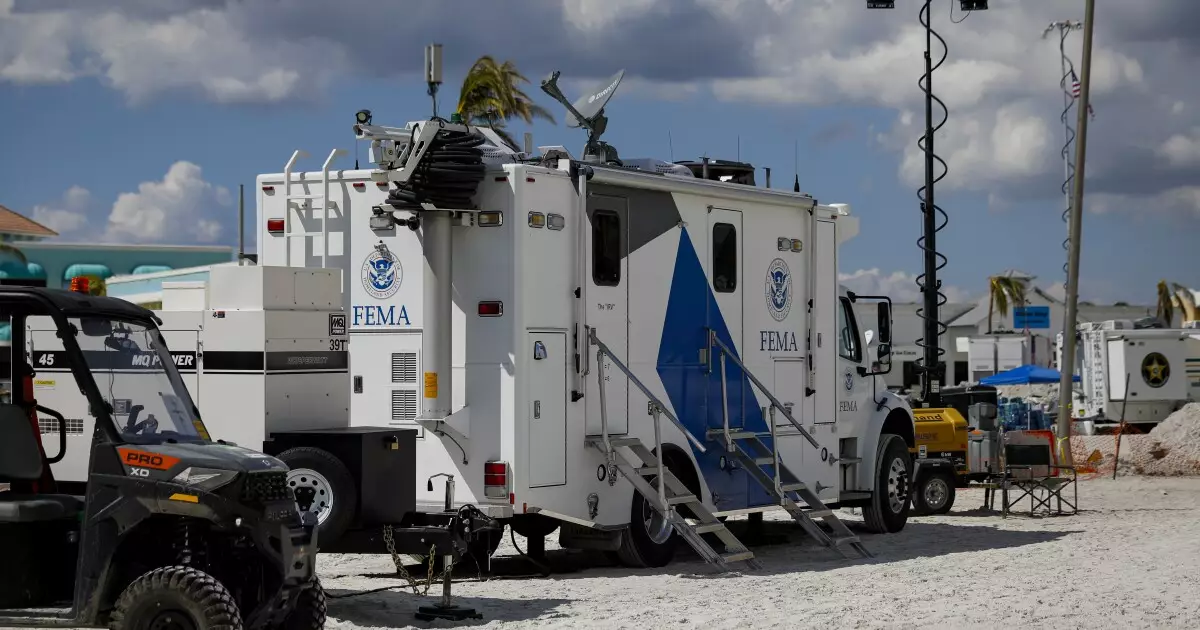In a landscape where climate-related disasters have surged, significant cuts to the Federal Emergency Management Agency (FEMA) signal a precarious shift in public policy. The warnings issued by both S&P Global Ratings and Tom Kozlik, a critical voice in municipal strategy, underscore an urgent concern: vital federal funding is set to dwindle just as the nation confronts an escalation in natural disasters. For municipalities along the Gulf Coast and the Atlantic, where disaster declarations have proliferated, these budget cuts could spell a perfect storm of financial instability.
Kozlik’s apprehensions are not unwarranted; areas already grappling with hurricanes, floods, and wildfires face a precarious future absent federal disaster relief. As the fabric of federal support thins, local governments could find themselves strapped for liquidity, forced to dip into reserve funds that are already under strain. This shift introduces an unpredictable landscape for municipal bonds—financial instruments that have historically relied on federal backing during crises. The consequences could ripple through local economies, prompting a cycle of credit weakening that may be felt for generations.
Local Governments on the Edge
Many states are in a comparatively strong position to handle the aftermath of natural disasters, yet the uncertainty surrounding FEMA’s future poses a governance and financial quandary. Without a reliable safety net, localities could face the daunting task of absorbing calamities that they lack the means to handle. Kozlik’s insights reveal that the financial implications are staggering: dwindling tax revenues, demands for increased reserves, and a higher likelihood of unfunded liabilities are just the tip of the iceberg.
The threat of population decline also looms large, as residents flee areas increasingly battered by climate change. This exodus can lead to a diminished tax base and the spiraling decline of local services, ultimately rendering municipalities less capable of recovering from disasters. For states with limited financial buffers, the ramifications could be dire, risking their long-term viability and governance effectiveness.
The Political Tug of War
The changing narrative surrounding FEMA isn’t merely about budget cuts; it involves a comprehensive reevaluation of our approach to disaster management and relief. The tenuous relationship between federal and local government responsibilities comes under scrutiny, particularly as former President Donald Trump has floated ideas aimed at drastically reducing or even phasing out FEMA. Such measures would undermine years of progress in addressing the systemic challenges posed by natural disasters.
The political landscape will play a critical role in shaping FEMA’s future, with factions arguing both for and against its comprehensive funding. The House’s current budget proposal reflects a compromise that keeps FEMA intact but at lower funding levels. While this may provide some short-term relief, the long-term implications are troubling. If the government continues to impose higher damage thresholds on federal assistance, it amounts to an abdication of responsibility, shifting the burden entirely onto local municipalities during catastrophic events.
Financial Devolution: A Treacherous Path Ahead
The fabric of American governance is woven with the thread of shared responsibilities, especially when it pertains to disaster recovery. As S&P Global Ratings has pointed out, emergent fiscal challenges will not only result in credit pressures but also test the managerial mettle of local governments. With the looming specter of less federal support, bond issuers may find themselves navigating turbulent waters without a life raft.
The potential rise in liquidity issues threatens the stability of municipal finance, culminating in a ripple effect that could stall infrastructure projects and essential services. When funding becomes a question mark, visions of resilient communities are dimmed. A world without a robust FEMA leaves local governments vulnerable, underscoring an unsettling reality: federal dependency remains deeply entrenched in the recovery narrative.
Each budget decision represents a choice about the kind of legacy we want to leave. As local governments brace for a fight against disasters without the scaffolding of federal support, we must confront an unmistakable truth: the current trajectory endangers the future of municipal bonds and the communities they support. It is vital that we rethink our federal priorities, ensuring that disaster preparedness is not sacrificed on the altar of political expediency. Now more than ever, our national policies should reflect the urgency of our changing climate and the inevitable crises that come with it.


Leave a Reply